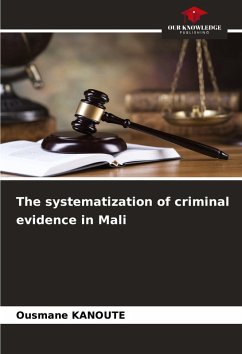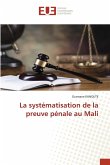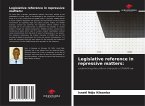Evidence is rarely the subject of studies commensurate with its importance in criminal proceedings. Yet the law of evidence is fascinating in its richness, contradictions and intransigence. The purpose of evidence is to establish the truth. Indeed, evidence is the means by which the judge can acquire a conviction, his or her own personal belief, and rule on the guilt or innocence of the accused. In criminal matters, evidence means proof of the commission of an offence. It therefore involves proving not only the existence of a fact, but also the criminal nature of the act, its attribution to a person and the latter's intention to commit the reprehensible act. The aim of this book is therefore to analyze the content of evidence in criminal matters in Mali.
Bitte wählen Sie Ihr Anliegen aus.
Rechnungen
Retourenschein anfordern
Bestellstatus
Storno








